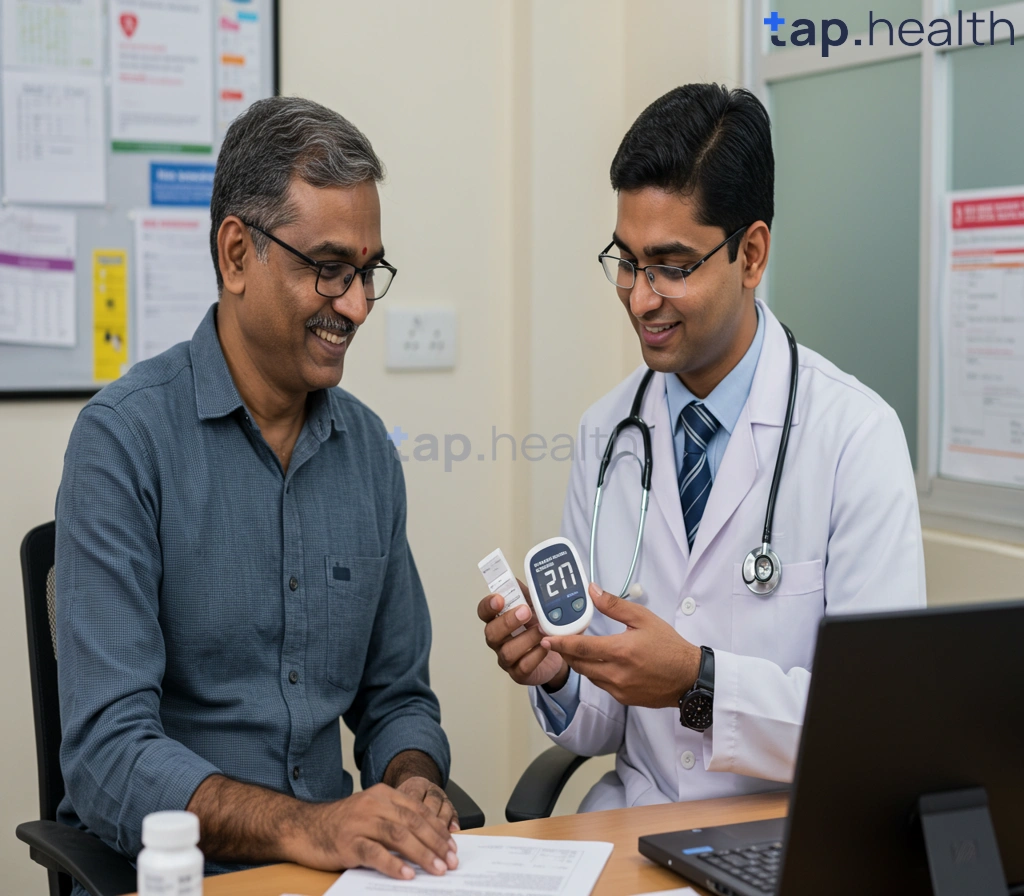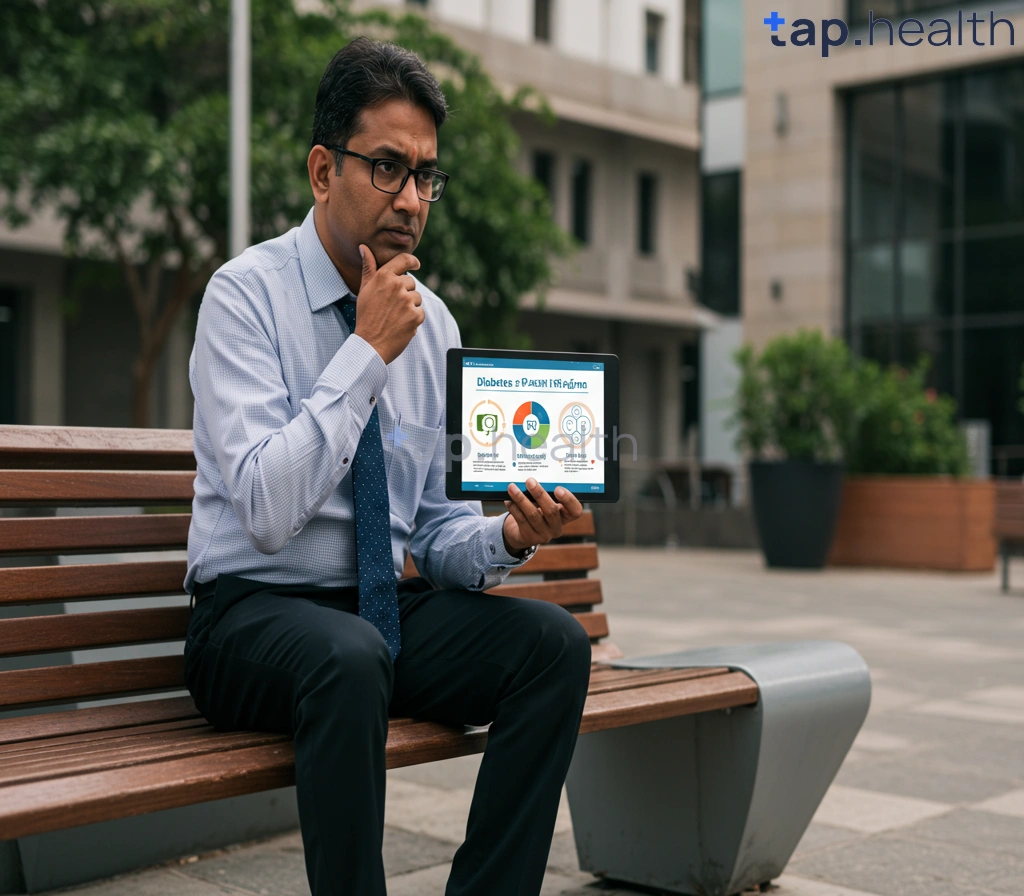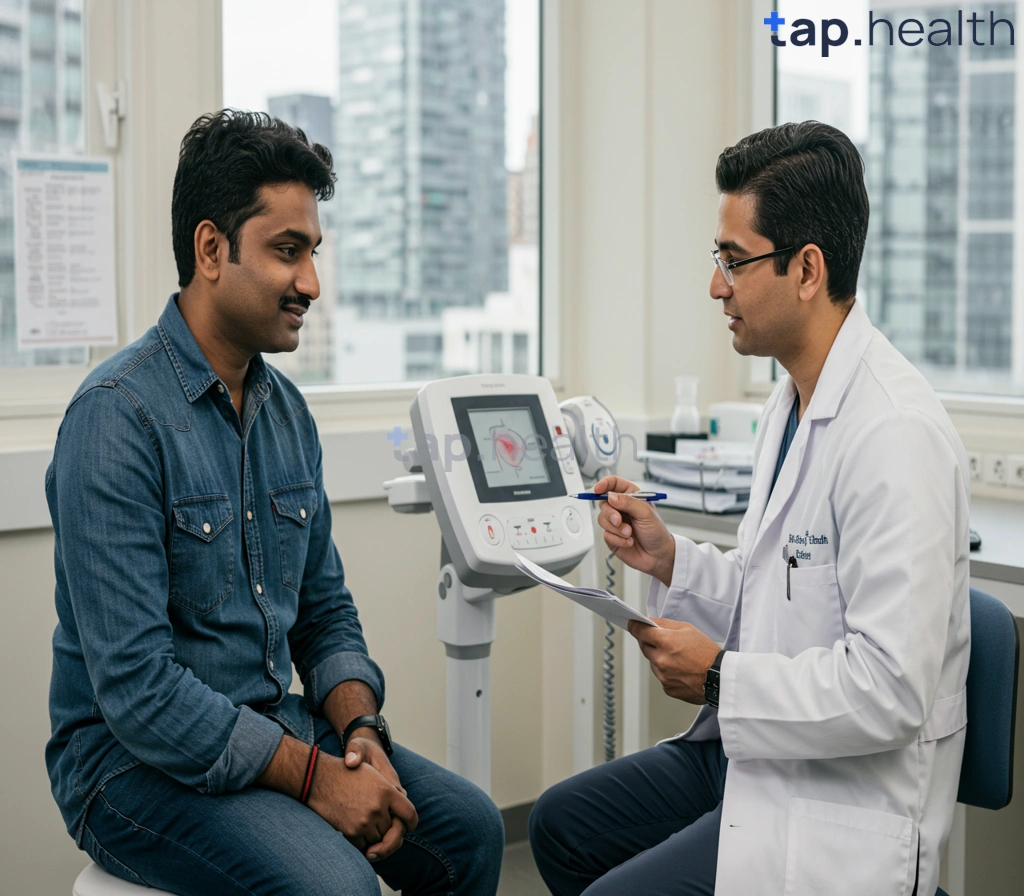Table of Contents
- Optimizing Diabetes Management Post Kidney Transplant
- Improving Type 2 Diabetic Outcomes After Transplantation
- Kidney Transplant & Diabetes: A Guide to Better Control
- Post-Transplant Diabetes Care: Challenges and Solutions for Type 2 Patients
- How to Enhance Diabetes Control After Kidney Transplant in Type 2 Diabetics
- Frequently Asked Questions
- References
Living with type 2 diabetes already presents significant challenges, but undergoing a kidney transplant adds another layer of complexity. Successfully navigating this journey requires a meticulous focus on improving diabetes control and patient outcomes after kidney transplant. This blog post delves into the crucial strategies and considerations for managing diabetes post-transplant, helping you understand the unique challenges and opportunities involved in optimizing your health and well-being. We’ll explore evidence-based approaches to minimize complications and maximize your chances of a successful and healthy life after your transplant. Let’s explore how to achieve better long-term health and quality of life.
Optimizing Diabetes Management Post Kidney Transplant
The Challenge of Post-Transplant Diabetes in India and Tropical Countries
Diabetes significantly impacts kidney health; nearly 30% of individuals with diabetes develop diabetic nephropathy. This poses a substantial challenge, particularly after a kidney transplant, a procedure already demanding meticulous care. In India and other tropical countries, where diabetes prevalence is high and access to specialized care can be limited, optimizing post-transplant diabetes management is crucial for improved patient outcomes. Poor glycemic control post-transplant increases the risk of infection, rejection, and graft failure, impacting long-term survival.
Strategies for Effective Diabetes Management
Successful management requires a multi-pronged approach. This includes meticulous monitoring of blood glucose levels, adherence to prescribed medication (including insulin therapy if needed), and a well-structured diet. Regular checkups with a nephrologist and endocrinologist are essential. Lifestyle modifications, such as regular exercise and stress management techniques—especially crucial in high-stress environments common in many Indian and tropical contexts—are vital. Patient education plays a central role; understanding their condition and the importance of adherence significantly improves outcomes. As you age, the challenges of diabetes management can increase, so it is important to learn Managing Diabetes as You Age: Challenges and Solutions .
Regional Considerations and Call to Action
Access to resources and specialized healthcare varies across India and tropical regions. Therefore, building strong support networks, including family involvement and access to reliable healthcare professionals familiar with managing diabetes in these settings, is crucial. Seek expert advice from a qualified nephrologist and endocrinologist in your region. Early detection and proactive management are key to ensuring a successful outcome and improving the quality of life for individuals with type 2 diabetes after a kidney transplant in India and tropical countries. Furthermore, Boosting Immunity While Managing Diabetes is crucial for preventing complications.
Improving Type 2 Diabetic Outcomes After Transplantation
Up to 80% of Type 2 diabetes cases can be delayed or prevented through lifestyle changes, a crucial finding highlighted by the Indian government (source). This underscores the significant impact lifestyle interventions can have on managing diabetes, especially post-kidney transplant in individuals with Type 2 diabetes. Successful transplantation hinges not only on the surgical procedure but also on diligent post-operative care, including meticulous diabetes management.
Optimizing Post-Transplant Care in Tropical Climates
Post-transplant care in Indian and tropical countries presents unique challenges. High temperatures and humidity can impact medication absorption and overall well-being. Careful hydration is therefore paramount, alongside adherence to prescribed medication regimens. Regular monitoring of blood glucose levels, potentially more frequent than in temperate climates, is essential. Lifestyle modifications, such as a balanced diet emphasizing fresh fruits and vegetables readily available in the region, and regular, but appropriately paced, physical activity tailored to the climate, are crucial for optimal outcomes. While this focuses on Type 2 diabetes, understanding the immunocompromised state in Are Type 1 Diabetics Immunocompromised? can offer insights into overall immune function following transplantation.
Actionable Steps for Improved Outcomes
Patients need strong support systems. Family and community involvement is vital for ensuring adherence to medication and lifestyle changes. Access to specialized diabetes care, including regular consultations with endocrinologists and dieticians experienced in post-transplant management, is crucial. Educational programs focusing on nutrition tailored to the region and effective coping strategies for managing diabetes in hot climates will help improve patient compliance and long-term health. By proactively addressing these needs, we can significantly enhance the quality of life and long-term survival rates for Type 2 diabetics after kidney transplantation in India and similar tropical regions. For those needing to adjust weight management alongside diabetes control, information on How to Gain Weight with Type 2 Diabetes? may be helpful, though weight management strategies should always be discussed with a physician.
Kidney Transplant & Diabetes: A Guide to Better Control
Managing diabetes after a kidney transplant is crucial for long-term health, especially in regions like India and other tropical countries. The success of a kidney transplant in individuals with type 2 diabetes hinges significantly on achieving and maintaining optimal blood glucose control. This is particularly important given that over 60% of people with diabetes in India also have hypertension, a condition that further complicates post-transplant care.
Pre- and Post- Transplant Management
Careful management before and after the transplant is key. Pre-transplant optimization of blood sugar levels, blood pressure, and other metabolic parameters significantly improves the chances of a successful transplant and reduces the risk of complications. Post-transplant, a collaborative approach involving nephrologists, endocrinologists, and diabetologists is essential for personalized care. This often includes careful medication management, adjusting insulin or oral hypoglycemics to balance the effects of immunosuppressants. Regular monitoring of blood glucose, HbA1c, and kidney function is paramount.
Lifestyle Modifications for Better Outcomes
Beyond medication, lifestyle changes play a vital role. A healthy, balanced diet tailored to individual needs, regular physical activity appropriate for the patient’s condition, and stress management techniques are all crucial for long-term diabetes control. In many tropical countries, including India, dietary habits need careful consideration to prevent post-transplant weight gain which is a significant factor in diabetes management. For more in-depth strategies, check out our guide on 10 Proven Tips for Effective Diabetes Management.
Seeking Expert Advice in India and Similar Regions
Successful diabetes management after a kidney transplant requires a multidisciplinary approach and proactive engagement from both the patient and their healthcare team. In India and similar tropical regions, accessing specialist care and support groups can be vital for navigating the complexities of managing both diabetes and the post-transplant recovery process. Don’t hesitate to seek expert advice to ensure the best possible outcomes. Remember that a Personalized Diabetes Control Plan can significantly improve your chances of success.
Post-Transplant Diabetes Care: Challenges and Solutions for Type 2 Patients
The success of a kidney transplant hinges significantly on effective post-transplant diabetes management, especially in Type 2 diabetic patients. This is crucial considering the alarming statistic that 50% of diabetes cases worldwide remain undiagnosed, a figure likely higher in resource-constrained regions like many Indian and tropical countries.Learn more about global diabetes prevalence. Poorly controlled diabetes post-transplant increases the risk of complications such as infections, delayed graft function, and ultimately, graft loss.
Challenges in Post-Transplant Diabetes Management
Managing diabetes after a kidney transplant presents unique challenges. Immunosuppressant medications, essential for preventing organ rejection, often contribute to hyperglycemia (high blood sugar). Furthermore, many patients in India and tropical countries face limited access to specialized healthcare and consistent monitoring. Nutritional challenges, compounded by socioeconomic factors, further complicate achieving optimal glycemic control.
Solutions and Strategies for Improved Outcomes
Early and aggressive glycemic control is paramount. This involves meticulous monitoring of blood glucose levels, meticulous adherence to prescribed medications, and personalized dietary plans that are both culturally appropriate and manageable. Regular follow-up appointments with a nephrologist and endocrinologist are vital for timely adjustments to medication and lifestyle strategies. For patients in Indian and tropical countries, increased awareness campaigns and accessible, affordable diabetes care are essential. Initiatives that integrate traditional healthcare practices with modern medicine can prove particularly effective. Telemedicine can offer a pathway to overcome geographical barriers in accessing quality care. Understanding the nuances of Type 2 Diabetes: Symptoms, Causes and Treatment is crucial for effective management.
Conclusion
Improving post-transplant outcomes for Type 2 diabetics in India and other tropical countries requires a multi-pronged approach. This includes early diagnosis and aggressive management of diabetes, improved access to specialized care, culturally sensitive educational programs, and utilization of innovative technologies such as telemedicine. By addressing these challenges proactively, we can significantly improve the quality of life and long-term survival rates for transplant recipients. It’s important to note that while this article focuses on Type 2 diabetes post-transplant, the complexities of diabetes extend beyond this specific context. Misconceptions about other types of diabetes, such as the question of whether Type 3 Diabetes can be reversed, highlight the need for continuous education and research in this field.
How to Enhance Diabetes Control After Kidney Transplant in Type 2 Diabetics
Managing diabetes after a kidney transplant is crucial for long-term health, especially in Type 2 diabetics prevalent in Indian and tropical countries. Over 80% of Type 2 diabetics experience insulin resistance, a key factor impacting post-transplant outcomes. Effective diabetes control minimizes complications and improves the overall success of the transplant.
Optimizing Insulin Therapy & Monitoring
Post-transplant, many patients require adjustments to their insulin regimens. Close monitoring of blood glucose levels is paramount, using frequent self-monitoring or continuous glucose monitoring (CGM) systems. Regular consultations with endocrinologists and nephrologists are vital for personalized treatment plans, tailored to the individual’s metabolic response and specific needs within the Indian healthcare context. Early identification and management of hyperglycemia are key.
Lifestyle Modifications for Long-Term Success
Incorporating a balanced diet, rich in fresh fruits and vegetables readily available in tropical climates, is crucial. Regular physical activity, even moderate exercise like daily walks, improves insulin sensitivity and contributes to better overall health. Managing stress through yoga or meditation practices, common in many Indian and tropical cultures, can also positively impact blood sugar levels. These lifestyle changes, combined with medical supervision, can significantly enhance post-transplant outcomes. For more information on simple lifestyle changes, check out our article on 5 Easy Lifestyle Changes to Manage Type 2 Diabetes.
Accessing Support and Resources
Seeking support from diabetes educators and support groups is vital. Many hospitals in India and other tropical regions offer specialized diabetes management programs post-transplant. Active participation in these programs ensures access to up-to-date information and expert guidance, maximizing chances for successful diabetes control. Remember, proactive management of diabetes post-kidney transplant is essential for a healthier and longer life. The choice of diabetes medication is also crucial, and you can learn more about selecting the right medication in our blog on Which Diabetes Drug is Best for Diabetics with Kidney Disease?.
Frequently Asked Questions on Diabetes Control and Patient Outcomes After Kidney Transplant in Type 2 Diabetics
Q1. What are the biggest challenges in managing diabetes after a kidney transplant, especially in tropical climates like India?
The biggest challenges include the impact of immunosuppressant drugs on blood sugar, limited access to specialized care, and the need to adapt lifestyle changes to hot and humid climates. High temperatures can also affect medication absorption and overall well-being, requiring more frequent blood glucose monitoring and careful hydration.
Q2. What is a multi-pronged approach to managing diabetes after a kidney transplant?
A successful approach involves meticulous blood glucose monitoring, adhering to prescribed medications (including insulin if needed), following a structured diet, and regular checkups with a nephrologist and endocrinologist. Crucially, it also includes lifestyle modifications like regular exercise, stress management, and strong patient education.
Q3. How can I improve my chances of a successful kidney transplant outcome if I have Type 2 diabetes?
Before the transplant, focus on optimizing your blood sugar, blood pressure, and other metabolic parameters. After the transplant, work closely with your healthcare team—nephrologists, endocrinologists, and diabetologists—for personalized care, medication management, and regular monitoring of key indicators like blood glucose and kidney function. Lifestyle changes, such as a balanced diet and regular exercise, are also crucial.
Q4. What role does lifestyle play in managing diabetes after a kidney transplant in tropical regions?
Lifestyle plays a vital role. A balanced diet with fresh fruits and vegetables, appropriate exercise adjusted to the climate, and stress management techniques are essential. In tropical climates, careful hydration is crucial, and dietary choices must be considered to avoid post-transplant weight gain, a major factor in diabetes management.
Q5. What resources and support are available to help me manage diabetes after a kidney transplant in India or similar regions?
Seek expert advice from qualified nephrologists and endocrinologists in your area. Look for specialized diabetes management programs at hospitals, and utilize support groups for patients. Telemedicine can also help overcome geographical barriers in accessing quality care. Family and community involvement are also crucial for support and ensuring adherence to treatment plans.
References
- A Practical Guide to Integrated Type 2 Diabetes Care: https://www.hse.ie/eng/services/list/2/primarycare/east-coast-diabetes-service/management-of-type-2-diabetes/diabetes-and-pregnancy/icgp-guide-to-integrated-type-2.pdf
- Exploring Long-Term Prediction of Type 2 Diabetes Microvascular Complications: https://arxiv.org/pdf/2412.01331




